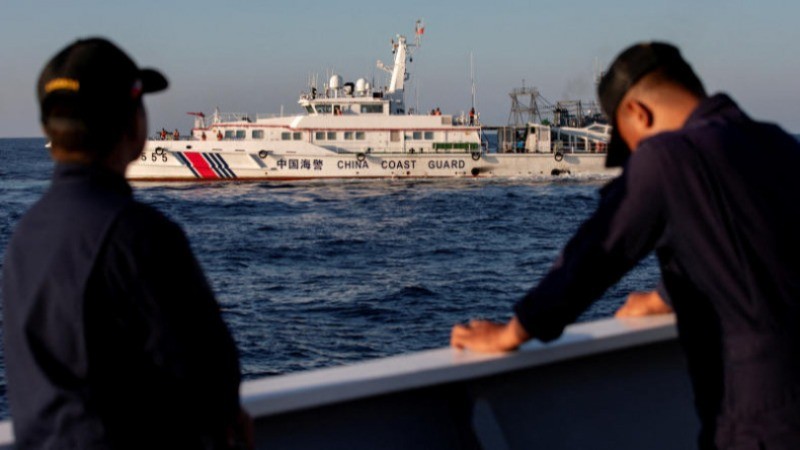
The Philippines has officially protested China's recent actions in the South China Sea, calling for Beijing to stop its “escalatory” behavior in the region. The protest, lodged on Monday, focuses on the presence of Chinese coast guard ships, militia, and navy vessels in the Philippines’ exclusive economic zone (EEZ), particularly near the contested Scarborough Shoal.
The dispute intensified after two Chinese coast guard vessels were spotted near the shoal on January 5 and 10. One of the ships, which the Philippines referred to as “the monster,” was a 165-meter (541-foot) long vessel. Additionally, a Chinese navy helicopter was reported to be deployed in the area, further heightening tensions.
Manila has consistently pushed back against China's sweeping territorial claims in the South China Sea, a region rich in energy resources. The Philippines has strengthened its maritime security by deepening ties with the United States and Japan in recent years.
The protest was made following Philippine President Ferdinand Marcos Junior took part in a virtual summit with the President of the United States Joe Biden and Japanese Prime Minister Shigeru Ishiba. This meeting took place against the backdrop of increasing tensions in the South China Sea, where China’s recent actions have sparked concerns in the region. The Philippines' strong stance reflects its growing unease over the developments in this contested maritime area. During the meeting, the leaders discussed security, economic cooperation, and China's “dangerous and unlawful” behavior in the South China Sea, as stated by the White House.
Under Biden's administration, the U.S. has increased its collaboration with both Japan and the Philippines, who face maritime disputes with China. The future of these alliances, however, could shift, as former President Donald Trump is set to return to power this month, potentially altering global geopolitical dynamics.
The Philippines' National Maritime Council condemned China's actions, asserting that the Chinese vessels and aircraft are disregarding both Philippine and international laws. The council called on China to cease its illegal activities and respect the Philippines' sovereign rights within its EEZ.
China, however, claims sovereignty over the Scarborough Shoal, accusing the Philippines of trespassing. The ongoing tensions between China and the Philippines have been escalating for the past two years, marked by frequent confrontations between their coast guards in the South China Sea. Beijing asserts control over nearly the entire region, a claim that is contested by several Southeast Asian nations, including the Philippines.
The South China Sea is of immense strategic and economic importance, with approximately $3 trillion in global commerce passing through its waters annually. In 2016, an international arbitral tribunal ruled that China’s historical claims in the area have no legal foundation under international law, a decision that China continues to reject.